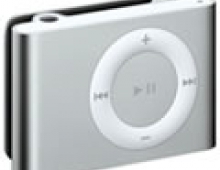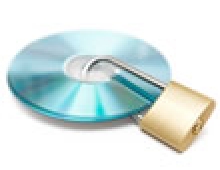
Company to Reverse-engineer iPod's DRM
US Navio, a company that specializes in rights-management technology for online stores, said it plans to reverse-engineer the FairPlay encoding system Apple uses on iTunes Music Store purchases.
It plans to break Apple's Digital Rights Management system in order to allow other online music retailers to sell downloads that are both DRM-encoded and iPod-compatible by early 2006, website playlistmag.com reports.
"Typically, we embrace and want to work with the providers of the DRM," said Ray Schaaf, Navio's chief operating officer. "With respect to FairPlay, right now Apple doesn't license that, so we take the view that as RealNetworks allows users to buy FairPlay songs on Rhapsody, we would take the same approach."
Last year, after unsuccessfully courting Apple to license FairPlay, RealNetworks introduced its Harmony technology, which allowed users to buy music from online sources other than the iTunes Music Store and transfer it to their iPod. RealNetworks' move was then denounced by Apple as adopting "the tactics and ethics of a hacker to break into the iPod." In December of 2004, Apple shot back by releasing an iPod software update that disabled support for RealNetworks-purchased songs.
RealNetworks corrected this with an updated release of Rhapsody and FairPlay encoded songs have been working ever since.
Content downloaded from iTunes is encoded with the FairPlay DRM system, effectively putting limits on how customers can use the content. Content providers want to use FairPlay because of the popularity of the iPod, which is incompatible with all DRM formats other than FairPlay. Apple has declined to license the technology to outside vendors.
FairPlay also appeals to content providers because of its ease of use. Apple's DRM is considered to be one of the less obtrusive forms of DRM on the market, since consumers only see that FairPlay is there when they are trying to violate rights privileges.
But Navio's Schaaf insists that his company won't be fazed by Apple's vow to thwart attempts to make FairPlay-compatible files without Apple's blessing.
"As technology advances with a software release or a different encoding scheme, you also need to have grandfathered rights for prior versions of songs," Schaaf said. "If a change is made or required then we would do it just the same way that Real or others would do it."
Schaaf declined to say exactly what types of Navio-powered stores would sell files using the FairPlay DRM, but he noted that Navio collaborates with companies in many markets.
"Typically, we embrace and want to work with the providers of the DRM," said Ray Schaaf, Navio's chief operating officer. "With respect to FairPlay, right now Apple doesn't license that, so we take the view that as RealNetworks allows users to buy FairPlay songs on Rhapsody, we would take the same approach."
Last year, after unsuccessfully courting Apple to license FairPlay, RealNetworks introduced its Harmony technology, which allowed users to buy music from online sources other than the iTunes Music Store and transfer it to their iPod. RealNetworks' move was then denounced by Apple as adopting "the tactics and ethics of a hacker to break into the iPod." In December of 2004, Apple shot back by releasing an iPod software update that disabled support for RealNetworks-purchased songs.
RealNetworks corrected this with an updated release of Rhapsody and FairPlay encoded songs have been working ever since.
Content downloaded from iTunes is encoded with the FairPlay DRM system, effectively putting limits on how customers can use the content. Content providers want to use FairPlay because of the popularity of the iPod, which is incompatible with all DRM formats other than FairPlay. Apple has declined to license the technology to outside vendors.
FairPlay also appeals to content providers because of its ease of use. Apple's DRM is considered to be one of the less obtrusive forms of DRM on the market, since consumers only see that FairPlay is there when they are trying to violate rights privileges.
But Navio's Schaaf insists that his company won't be fazed by Apple's vow to thwart attempts to make FairPlay-compatible files without Apple's blessing.
"As technology advances with a software release or a different encoding scheme, you also need to have grandfathered rights for prior versions of songs," Schaaf said. "If a change is made or required then we would do it just the same way that Real or others would do it."
Schaaf declined to say exactly what types of Navio-powered stores would sell files using the FairPlay DRM, but he noted that Navio collaborates with companies in many markets.




















